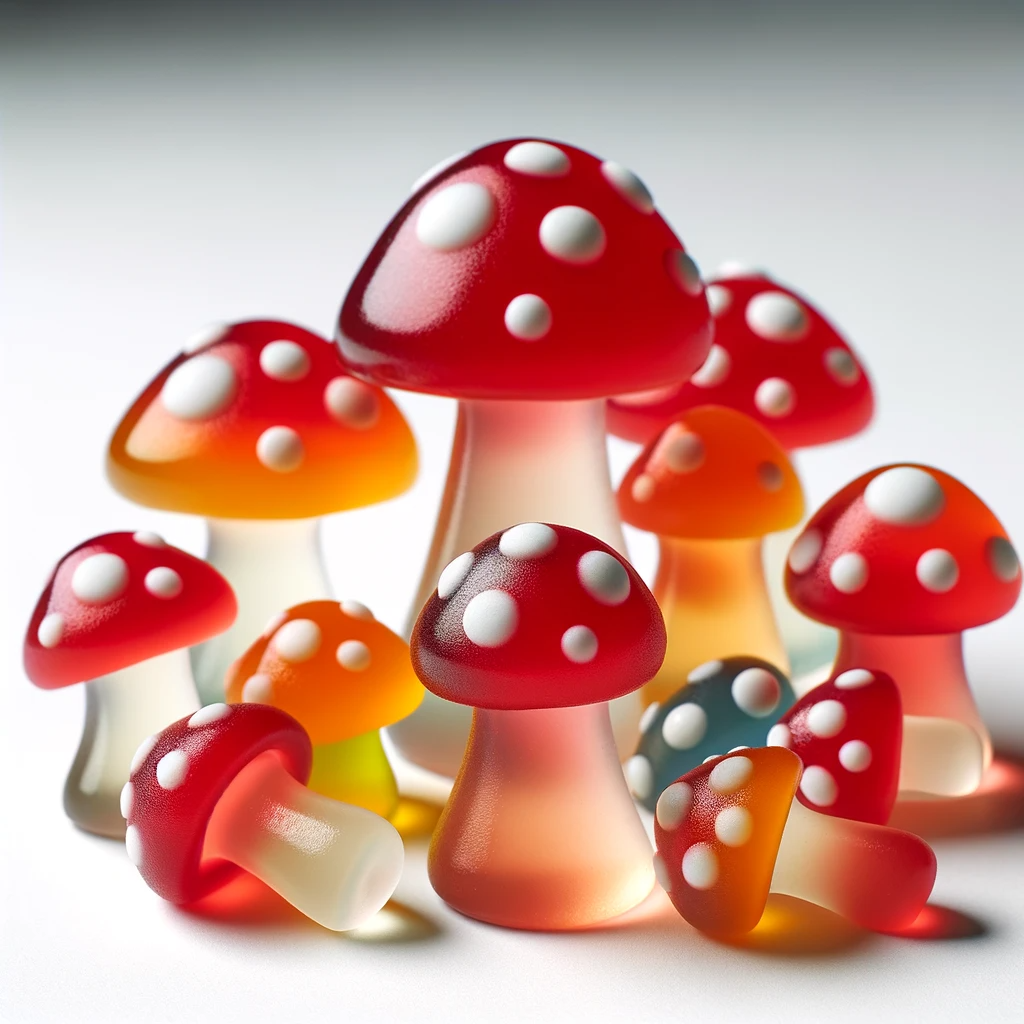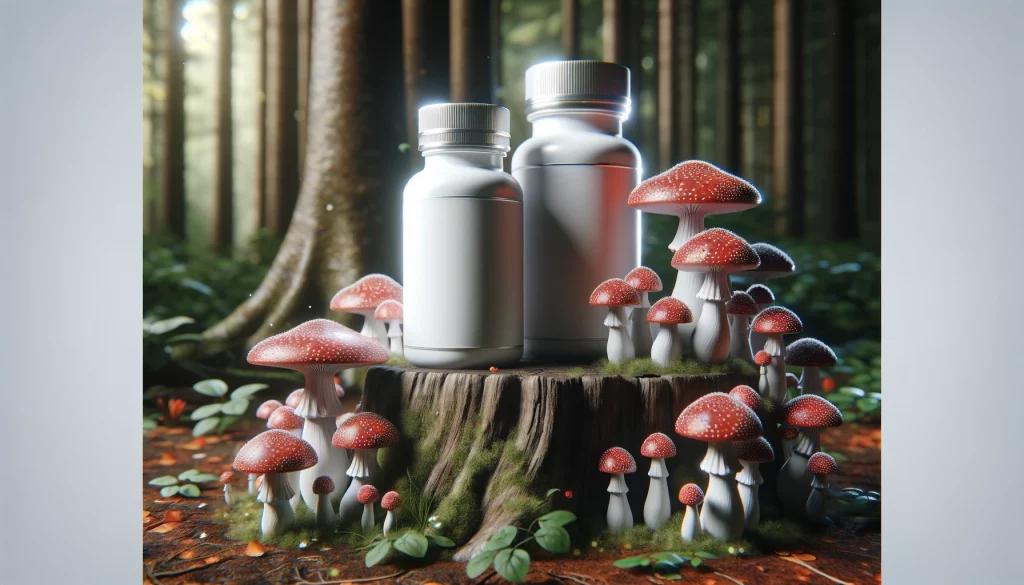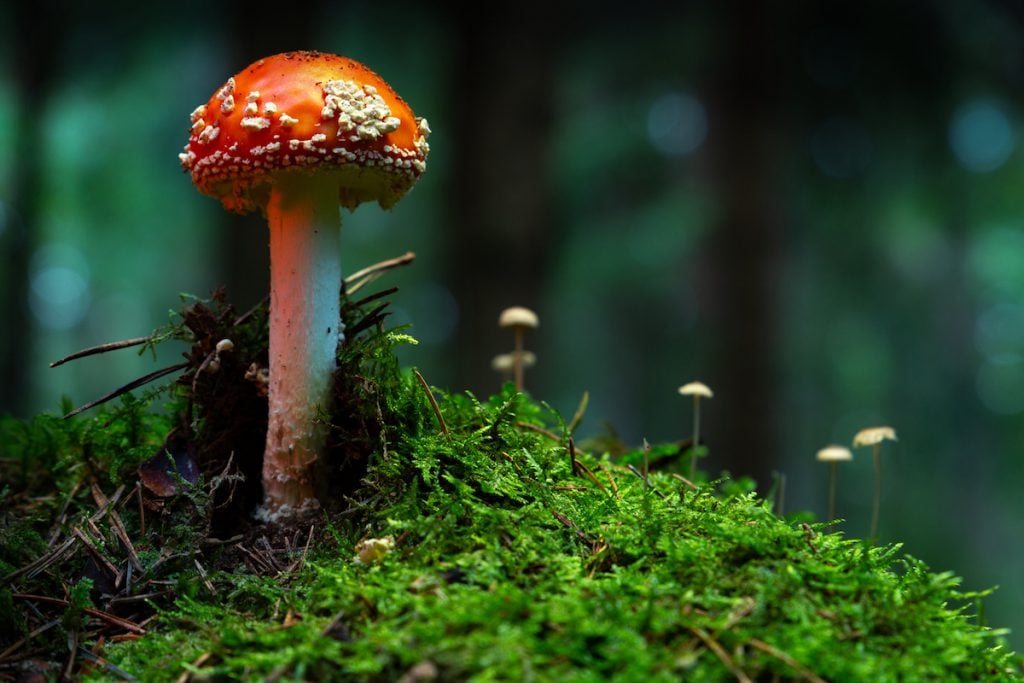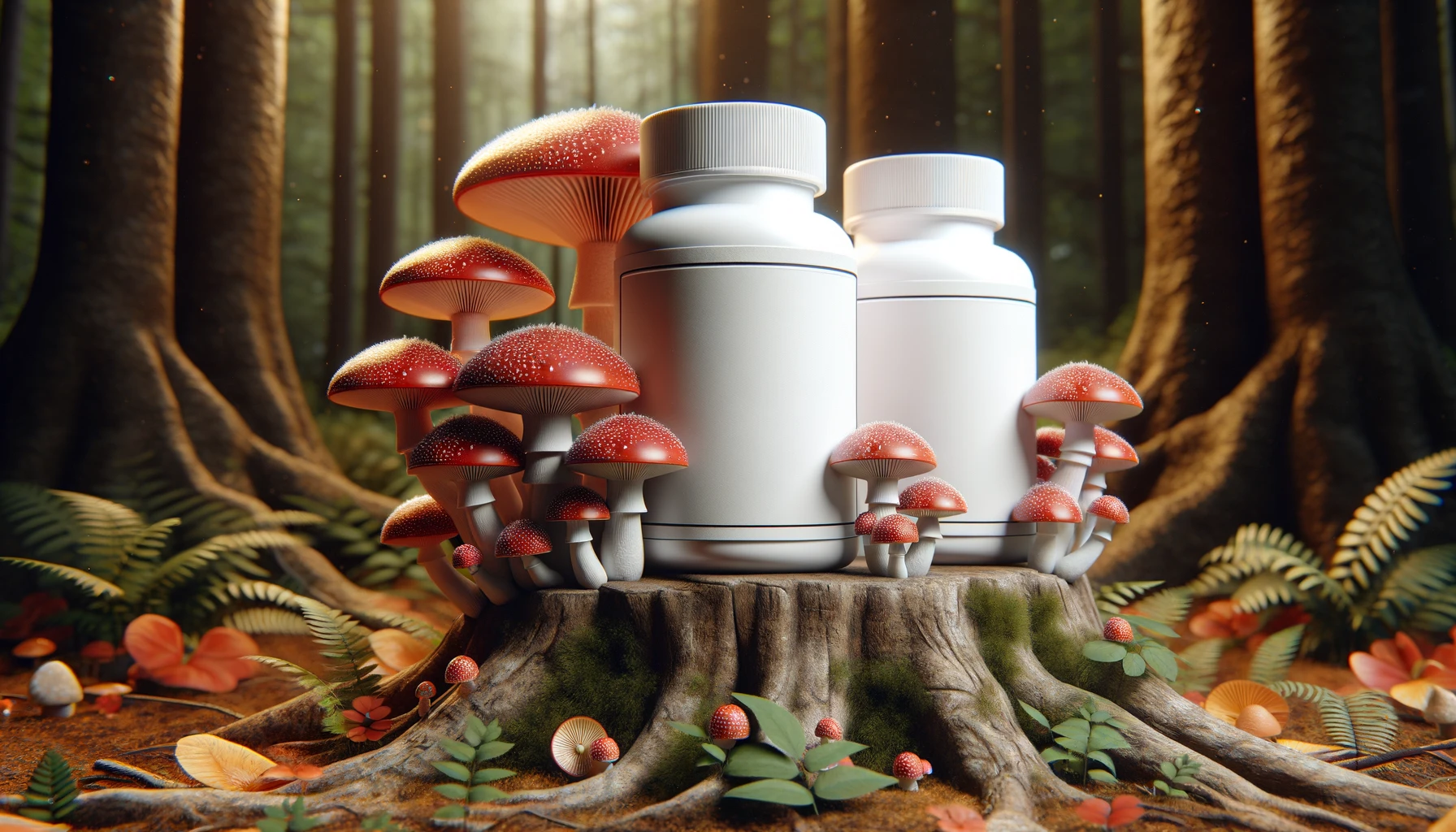Amanita mushrooms are a large and diverse family of fungi that includes some of the world’s most iconic and widely recognized mushrooms. They are known for their distinctive features, such as large caps, white gills, and volva-like stems. They can be found in various habitats, including temperate and tropical forests. They can also be found in grasslands, woodlands, and even deserts. Amanita mushrooms are edible, but some species are toxic and can cause serious health problems if ingested.
This article will provide an overview of Amanita mushrooms, including their physical characteristics, habitat, edibility, toxicity, and identification.
Physical Characteristics of Amanita Mushrooms

Amanita mushrooms have a few distinctive features that make them easily recognizable. These features include their large caps, white gills, and volva-like stem. The lids of Amanita mushrooms are usually white, but they can also be yellow, orange, or even pink. The gills of Amanita mushrooms are white and free from the stem. The stem is usually white, stuffed, or hollow, and a sack-like volva surrounds it.
Habitat of Amanita Mushrooms
Amanita mushrooms are found in various habitats, including temperate and tropical forests, grasslands, woodlands, and even deserts. They are usually found on the ground, but some species grow on rotting wood. They are most common in late summer and early fall, but some species can be found throughout the year.
Edibility of Amanita Mushrooms

Amanita mushrooms are edible, but some species are toxic and can cause serious health problems if ingested. These toxic species can be difficult to distinguish from edible species, so it is crucial to correctly identify Amanita mushrooms before consuming them.
Benefits of Amanita Muscaria Gummies
Amanita muscaria gummies are a delicious and nutritious snack. They are rich in essential vitamins, minerals, and antioxidants. Additionally, they are low in calories and fat, making them a great way to satisfy cravings without compromising your health.
Amanita muscaria is also known for its potential health benefits. Studies have shown that it may help improve cognitive function, reduce inflammation, and even improve mood. It can also help build immunity and protect against certain infections.
Toxicity of Amanita Mushrooms
Amanita mushrooms contain several toxins that can cause serious health problems if ingested. These toxins include amanitin, muscarine, and ibotenic acid. Amanitin is the most toxic of these toxins and can cause liver failure and death if consumed in large amounts.
Identification of Amanita Mushrooms

When identifying Amanita mushrooms, looking for their distinctive features, such as large caps, white gills, and volva-like stems, is essential. Other features that can help identify a mushroom include the cap’s color, the hat’s shape, and the presence of any spots or patches. It is also essential to learn about the habitat of Amanita mushrooms, as this can help to narrow down the possible species.
Safety of Consuming Amanita Mushrooms
Consumption of Amanita mushrooms can be dangerous if they are not correctly identified. Therefore, it is essential to correctly identify Amanita mushrooms before consuming them. Awareness of the potential toxins in Amanita mushrooms and the poisoning symptoms is also necessary. If you suspect that you or someone else has consumed a toxic Amanita mushroom, seek medical attention immediately.
Harvesting and Preparing Amanita Mushrooms for Consumption
When harvesting and preparing Amanita mushrooms for consumption, it is important to use extreme caution. Proper identification is essential, as some Amanita mushrooms can be mistaken for edible mushrooms. It is also important to cook Amanita mushrooms thoroughly, as heat does not destroy some toxins. Additionally, it is best to avoid consuming Amanita mushrooms raw, as some toxins can be resistant to heat and may not be destroyed by cooking.
Best Practices for Preparing Amanita Muscaria Gummies
Amanita muscaria gummies can be prepared in a variety of ways. Here are some of the best practices for designing Amanita muscaria gummies:
- Selecting the Mushrooms: When selecting mushrooms, it is crucial to look for fresh, firm, and free of decay. It is also essential to ensure the mushrooms are certified and tested.
- Cleaning the Mushrooms: It is crucial to clean the mushrooms to remove any dirt or debris. Using a clean, damp cloth and avoiding harsh chemicals is best.
- Soaking the Mushrooms: To ensure that the mushrooms are safe to consume, it is essential to soak them in cold water for 10 minutes.
- Drying the Mushrooms: After soaking, it is essential to dry the mushrooms entirely before using them.
- Grinding the Mushrooms: To prepare the mushrooms for gummies, it is important to grind them into a fine powder.
- Making the Gummies: Once the mushrooms are ground, it is time to prepare the gummies. There are a variety of recipes available online.
- Storing the Gummies: Once the gummies are made, it is important to store them in an airtight container in a cool, dry place.
Best Place To Shop For Cannabinoid Products
For premium cannabinoid products, especially disposables, look no further than STNR Creations. Their skilled team in Daytona Beach, Florida, is dedicated to creating exceptional cannabinoid products with a meticulous extraction process that ensures the highest quality and a superior experience.
What truly sets STNR apart is its innovative hardware. They have developed exclusive devices that push the boundaries of industry innovation, showcasing their expertise in hardware manufacturing. When you choose STNR, you choose a company committed to providing top-notch cannabinoid products.
As a bonus, by using the coupon code SLYNG420NG, you can save 20% on your next order! Take advantage of this opportunity to experience the excellence of STNR Creations today.
What Are Amanita Mushrooms – Conclusion
Amanita mushrooms are a large and diverse family of fungi that includes some of the world’s most iconic and widely recognized mushrooms. They are known for their distinctive features, such as large caps, white gills, and volva-like stems. They can be found in various habitats, including temperate and tropical forests, grasslands, woodlands, and even deserts. Amanita mushrooms are edible, but some species are toxic and can cause serious health problems if ingested.
When identifying Amanita mushrooms, looking for their distinctive features, such as large caps, white gills, and volva-like stems, is important. It is also essential to learn about the habitat of Amanita mushrooms, as this can help to narrow down the possible species.
